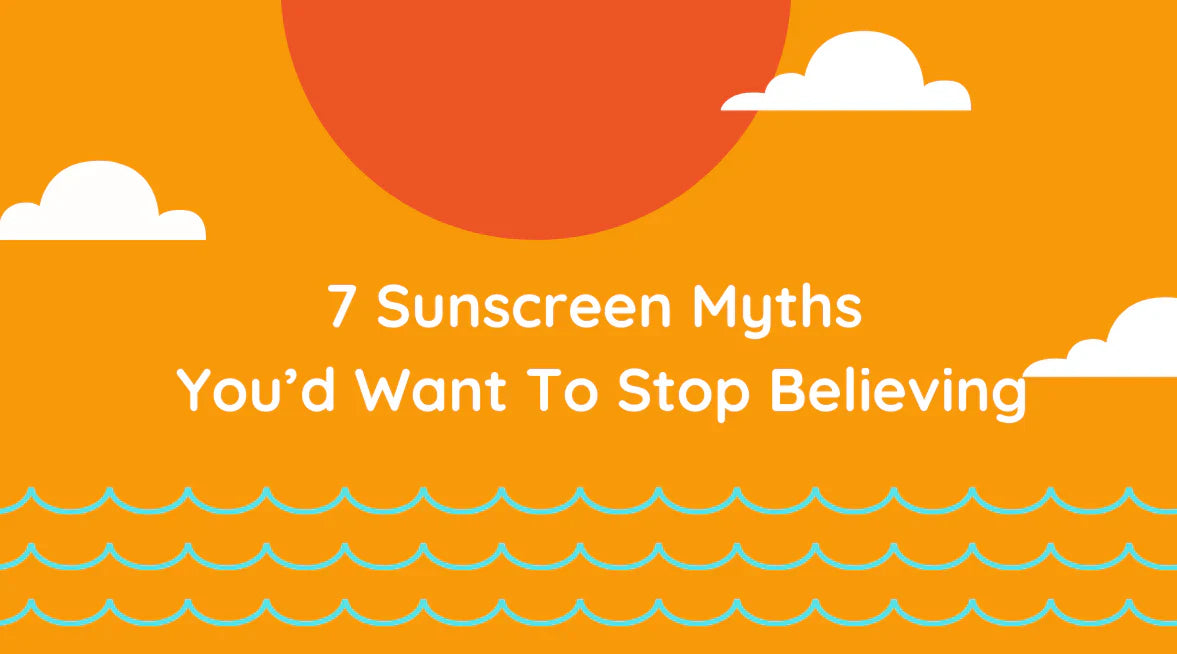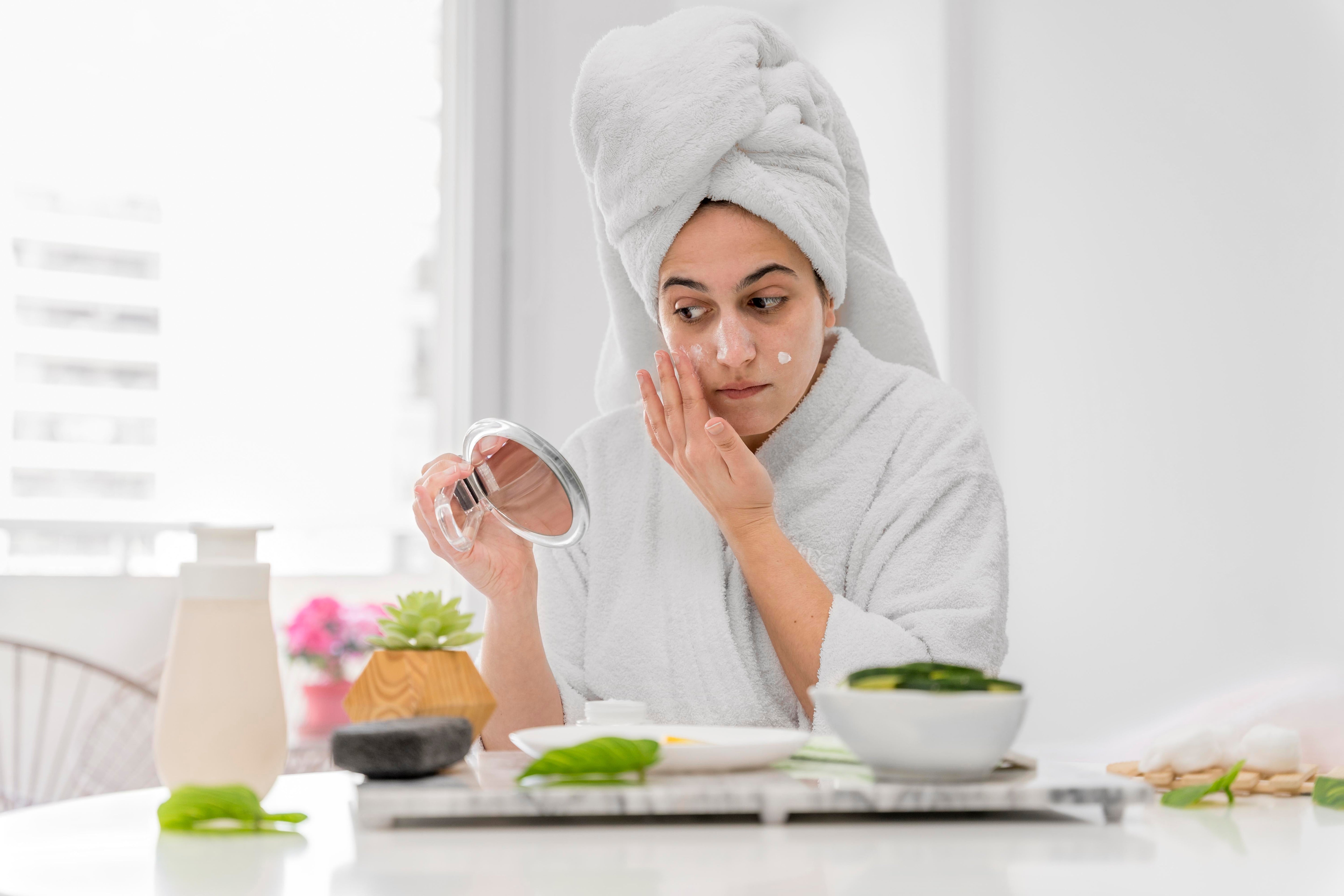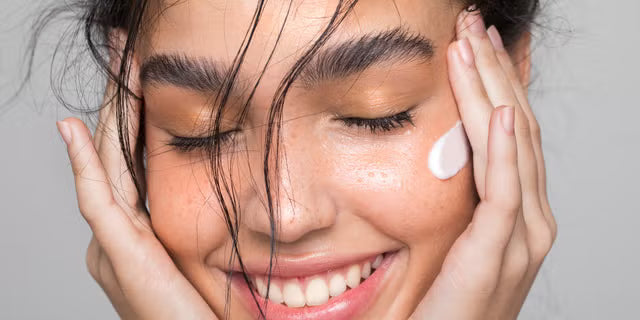
Sunscreen Myths: What You Need to Know
Are you tired of the weather changes, especially on sunny days, where there is a high intensity of heat, which can damage your skin cells? Many skin issues are on the rise due to exposure to the sun or other environmental factors. Even you go outside your house or not, it is really important to take care of your skin. Here, we need something that can protect our skin from various concerns and other environmental factors.
Generally, everyone would recommend you apply sunscreen, but at the same time, many of them would give their opinion that sunscreen is not good for your skin. Although sunscreen has its benefits but let’s consider the myths that people are spreading about the sunscreen. Through this blog, we’ll help you get to know more about sunscreen and the real truth about its myths.
Sunscreen: A Complete Overview
Sunscreen is one of the most important elements of a skin care routine. Its role is not limited only to protecting our skin from sun damage or from harmful UV rays, but it is much more than this. Sunscreen can be applied during the morning or even in the evening, but the point is that it keeps your skin away from various skin concerns. It creates a layer on your skin that prevents the effect of harmful effects from the environment and other external factors. It helps your skin to maintain a hydration level (even in extreme sunny days) to keep your skin moisturized and avoid the situation of dehydration.
It is beneficial in protecting your skin from UVA and UVB rays, harmful rays (that can cause serious skin concerns), and minimizing the damage that can lead to early signs of skin ageing and skin cancer. Furthermore, sunscreens are formulated with some special ingredients that provide your skin with extra moisture, a soothing and nourished skin, glowing skin with clear skin tone and texture, and also healthy, beautiful skin.
Common Myths about Sunscreen: You Need to Know
Myth 1. Sunscreen Causes Cancer
Fact - No. Sunscreen does not cause cancer. The real risk comes from UV rays, not from sunscreen. Make sure to choose sunscreens free of harmful chemicals or ingredients.
Myth 2. Dark skin doesn’t need sunscreen
Fact - Even dark skin gets sunburned and damaged by UV rays; it is formulated in such a way that it should be used by everyone, regardless of their skin tone.
Myth 3. Sunscreen is only for the morning
Fact - UV rays can still reach your skin on cloudy or cold days. Apply sunscreen year-round, not just in sunny weather.
Myth 4. Sunscreen doesn’t expire.
Fact - Sunscreen does expire. Every cosmetic product has its expiration date; there are no products available that don’t expire. Store it properly, and ensure it remains effective up until the expiration date. Avoid hot ot sunny places for storage.
Myth 5. Makeup with SPF replaces sunscreen.
Fact - Most makeup with SPF doesn’t offer enough protection. Use a sunscreen with SPF 30 or higher.
Myth 6. Waterproof sunscreen doesn’t need reapplication.
Fact - There is no such thing as waterproof sunscreen, only water-resistant. You can reapply, especially after swimming or sweating.
Myth 7. Sunscreen will block the absorption of vitamin D in your body.
Fact - There is no such truth about this myth; sunscreens are formulated to block the harmful UV rays. Although vitamin D is a vital nutrient for human health. But many scientists and dermatologists suggest that just 5 to 30 minutes of sun exposure is enough to get an efficient amount of vitamin D for your body.
Conclusion
Sunscreen is like a shield that protects your skin from various skin concerns and other environmental factors. They are formulated to keep your skin protected from the harmful UV rays and help you prevent sunburns and dehydration. Sunscreens have other benefits as well, other than behaving as a shield; they also make your skin moisturised, which reduces the chances of dryness, redness, and also reduces the risk of premature aging(like wrinkles and age spots). There are a lot of myths spread about sunscreen among people, which are generally not true, so it is good to research on your own rather than asking a person who has no idea about sunscreen or other cosmetic products.
Frequently Asked Questions on Sunscreen
Question 1. Does high SPF provide more protection?
Answer - Yes, high SPF generally provides more protection. The higher the SPF number, the higher the chance of UVB rays it will block. It depends on the SPF numbers; SPF15 blocks approximately 93% of UVB rays, similarly SPF30 can block about 97% of UVB rays. So, yes, the higher SPF number matters, but the effectiveness of sunscreen also depends on the quantity applied, the UV index, and whether the skin is sweating or swimming.
Question 2. Which sunscreen is good for your skin?
Answer - Choice of sunscreen depends on several factors associated with your skin, such as your skin type, needs of your skin, and which ingredients are best to suit your skin concerns. Generally, mineral sunscreens, containing zinc oxide or titanium oxide, are considered good for skin, especially for sensitive skin. So, before purchasing any sunscreen, do some research on it, or you can go to a dermatologist to consult about your skin type and which sunscreen is good for your skin. Be aware to do a patch test before applying to a larger area of your skin.
Question 3. When and how much should I apply sunscreen?
Answer - Sunscreen should be applied 15-20 minutes before sun exposure. Even if you are not going outside, you should apply it after your basic makeup, like serum, moisturizer. It should be reapplied after every 2-3 hours based on the intensity of heat outside or if swimming or sweating.
You can take a pea-sized sunscreen in your palm and then you can apply it to you whole face, neck, or if you want to apply it to your whole body, then take as much to you need and after applying, tap the areas with firmness and leave it to get absorbed into your skin.
Question 4. Are all sunscreens are same?
Answer - No, all sunscreens are not the same. Each sunscreen is different in formulation, ingredients, purpose, and based on different skin types. Sunscreen comes in broad-spectrum with different SPF and also for different skin types.








